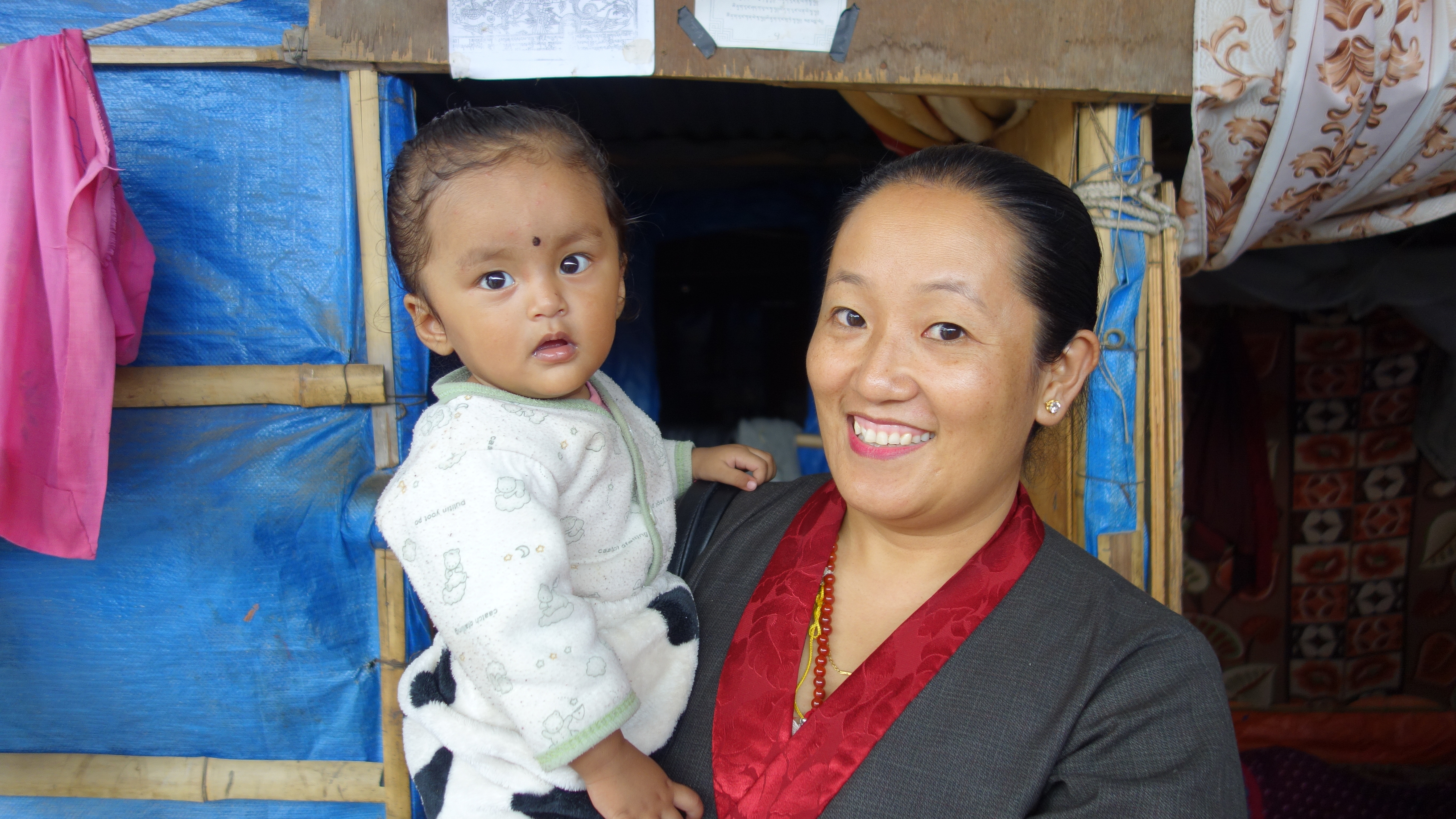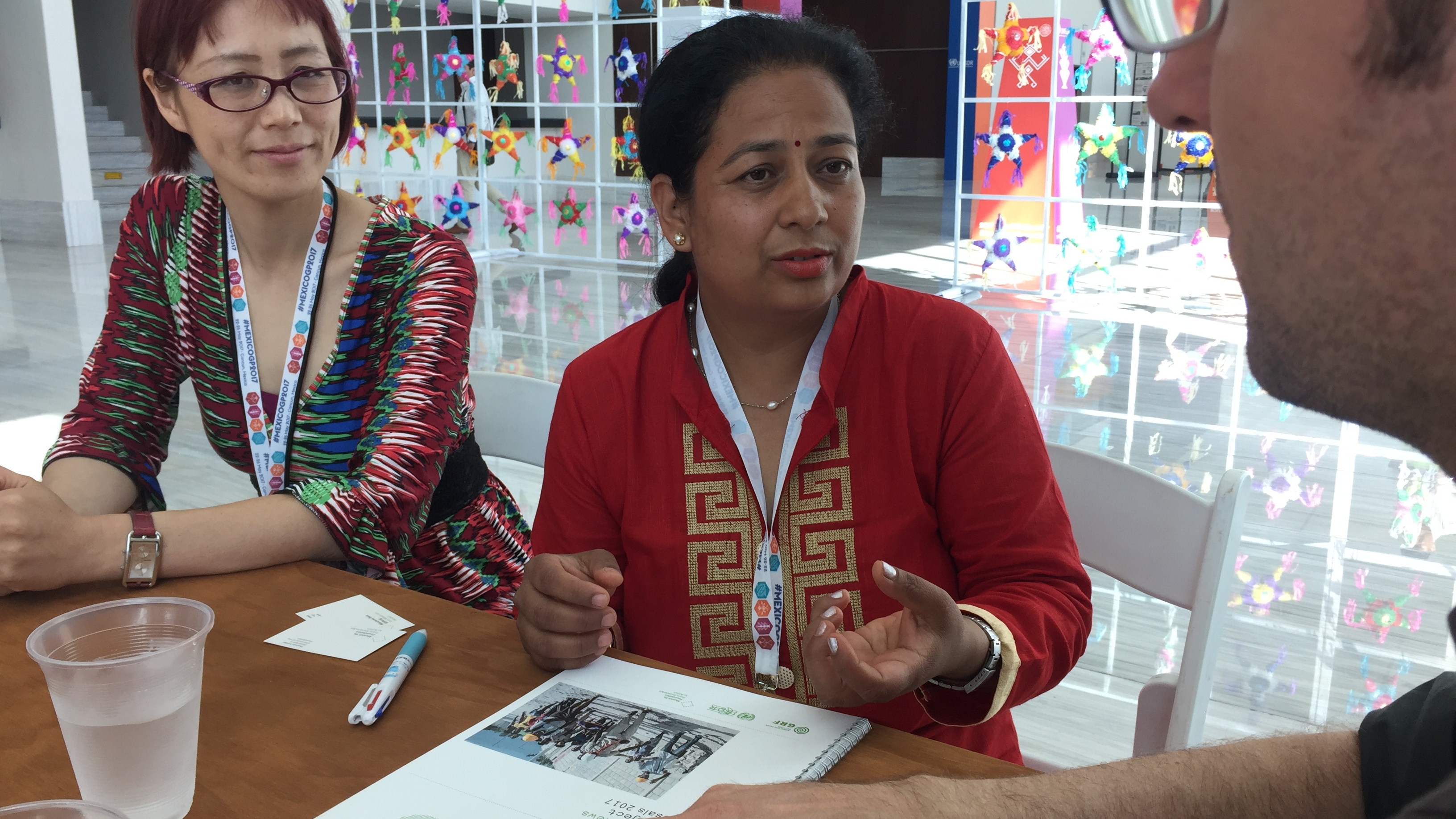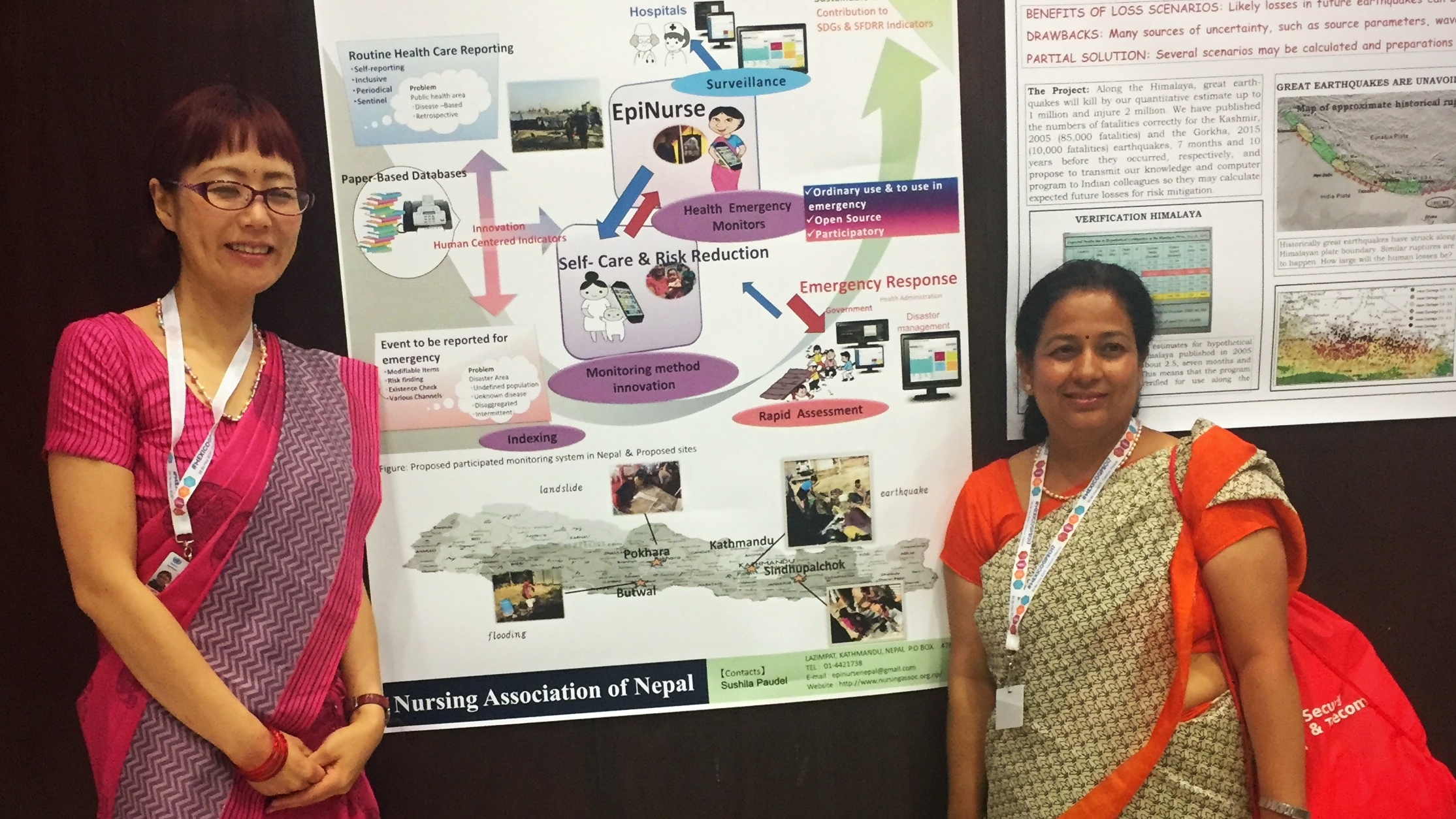
Nurses in Nepal – Indispensable for disaster risk management, but still not held in the esteem they deserve
Interview with Apsara Pandey and Sakiko Kanbara
properties.trackTitle
properties.trackSubtitle
0:00
Apsara Pandey, Vice President of the Nursing Association of Nepal, represented her organisation at the Global Platform in Cancun, where she received the 2017 RISK Award. Her team won the prestigious prize, endowed with € 100,000, for the “EpiNurse” project. This aims to enhance the public health emergency preparedness through an innovative approach to data collection. The value of nursing and the appropriate management of health staff are key aspects of this. We spoke to Apsara Pandey and Sakiko Kanbara from Japan, the founder of the EpiNurse system, about their plans.

Sakiko Kanbara and Apsara Pandey (from left to right) explain the EpiNurse system.
Apsara: First of all, we are honoured to be the winner of the 2017 RISK Award. We are pleased and relieved that our project was selected and recognised as a blueprint for risk reduction. This recognition gives us much-needed support. But we also feel responsible for developing our proposed system to make it applicable in other disaster-prone areas.
MRF: What are to be the first steps?
Apsara: We need to train more local community nurses to carry out our mission. Right now, the nurses do not have a full understanding of disaster risk reduction and risk management. But the Nepali nurses are motivated and passionate about helping people in need. We have to translate this enthusiasm to measurable knowledge and action plans.
MRF: EpiNurse has been successfully implemented in Japan, Indonesia and the Philippines. Sakiko, as founder of this idea, what do you regard as special about EpiNurse in Nepal?
Sakiko: The 2015 earthquake in Nepal occurred at a time when the EpiNurse framework was being solidified. So we could directly apply our new methodology in real situations rather than in simulation – and it proved successful! Prior to our engagement, the work and potential of so many nurses wasn’t recognised and therefore they were insufficiently deployed.
MRF: What role do new technologies play?
Sakiko: We connected the local knowledge and the nurses’ professional health security knowledge by using information and communication technologies (ICTs) and were able to prevent an outbreak of communicable diseases. Furthermore, we were able to collect public health information from isolated shelters. This data could not have been obtained without the nurses and their valuable surveillance work. Since we could offer professional care and data monitoring via EpiNurse, the other women in the camps were freed from the burden of taking care of their sick relatives themselves. Instead they were able to proceed with their day-to-day work, which prevented income loss.
MRF: Apsara and Sakiko, where do you see the EpiNurse project in two years from now?
Apsara and Sakiko: We expect the EpiNurses of our project to be fully versed and equipped in disaster risk reduction literacy and technology, especially ICT. Whenever there is need, EpiNurses will automatically monitor the health situation in the affected areas and provide care services.
MRF: The RISK Award aims at highlighting groups who play an important role for DRM and whose work is often not really appreciated. How big is the potential in Nepal to serve this goal?
Apsara: The award’s potential is immense! It recognises the importance of the nurses’ role in disaster mitigation. Many people in Nepal don’t value their work sufficiently; their potential is neglected. Due to lack of medical facilities, many licensed nurses are not employed. Only when working in the communities are the nurses, who are mostly women in Nepal, treated with respect.
MRF: So empowerment is key?
Apsara: Yes. The EpiNurse project empowers women with practical skills and allows them to take over leadership functions. Knowledge and usage of ICT play a big role. Due to their new self-esteem they are now empowered in their dealings with community-leaders – even daring to oppose them when their opinion regarding the necessity of health monitoring differ from that of the community leaders. Every nurse within the programme should be able to work independently since the shelters are often remote and have no access to regional infrastructure during emergencies.

Sakiko Kanbara and Apsara Pandey present the EpiNurse project after the RISK Award Ceremony.
MRF: How does the EpiNurse system work?
Apsara: EpiNurse as background organisation has the responsibility to connect all nurses and provide all the necessary resources to establish an overarching surveillance system and network. Thus we can easily detect where help is needed and where we might need external support.
MRF: And your vision for the future is?
Apsara: Nurses will serve as role models, carrying out disaster risk reduction activities to create a better future for all.
June 2017